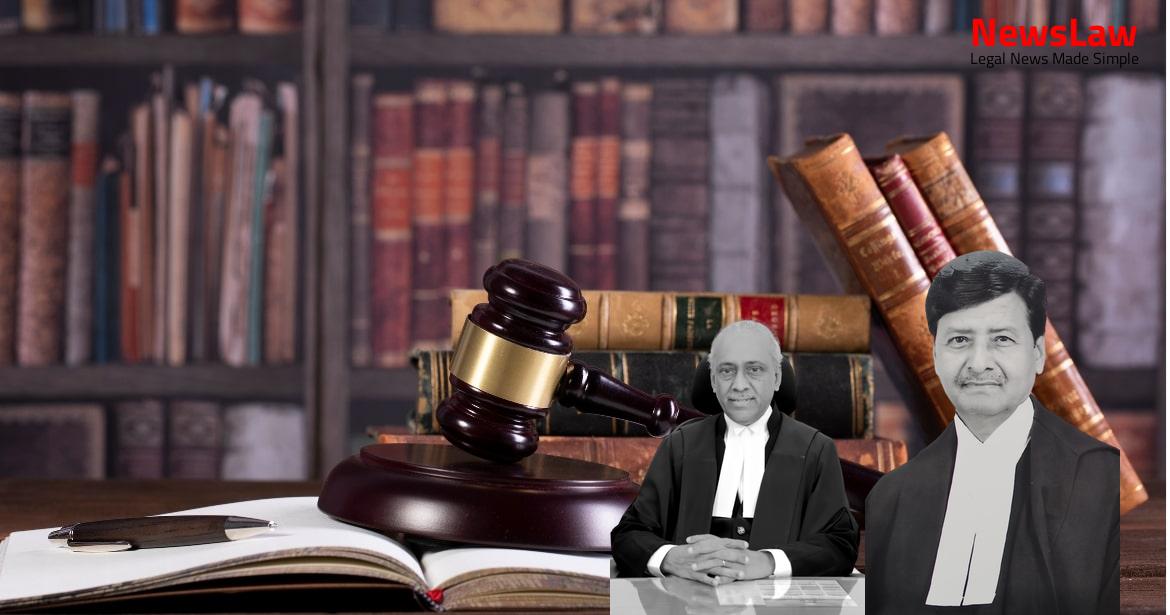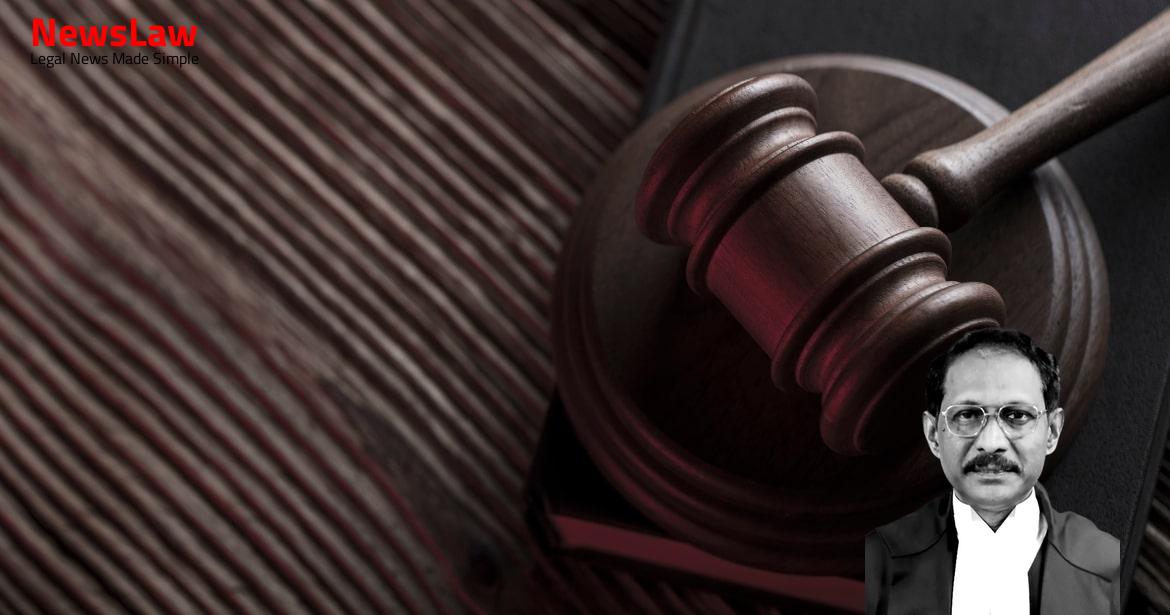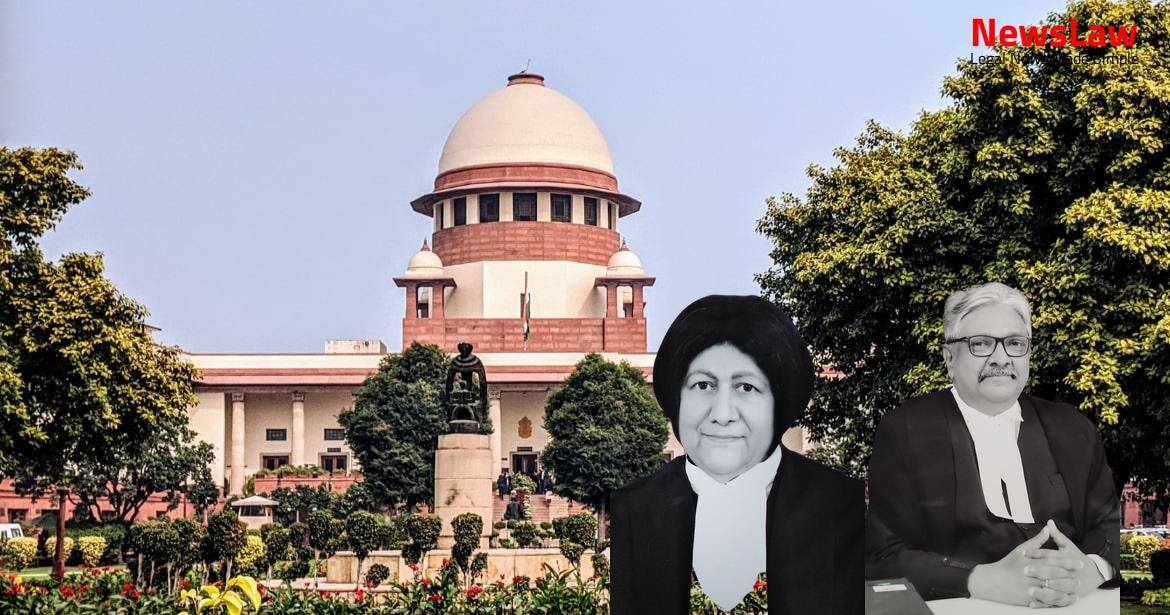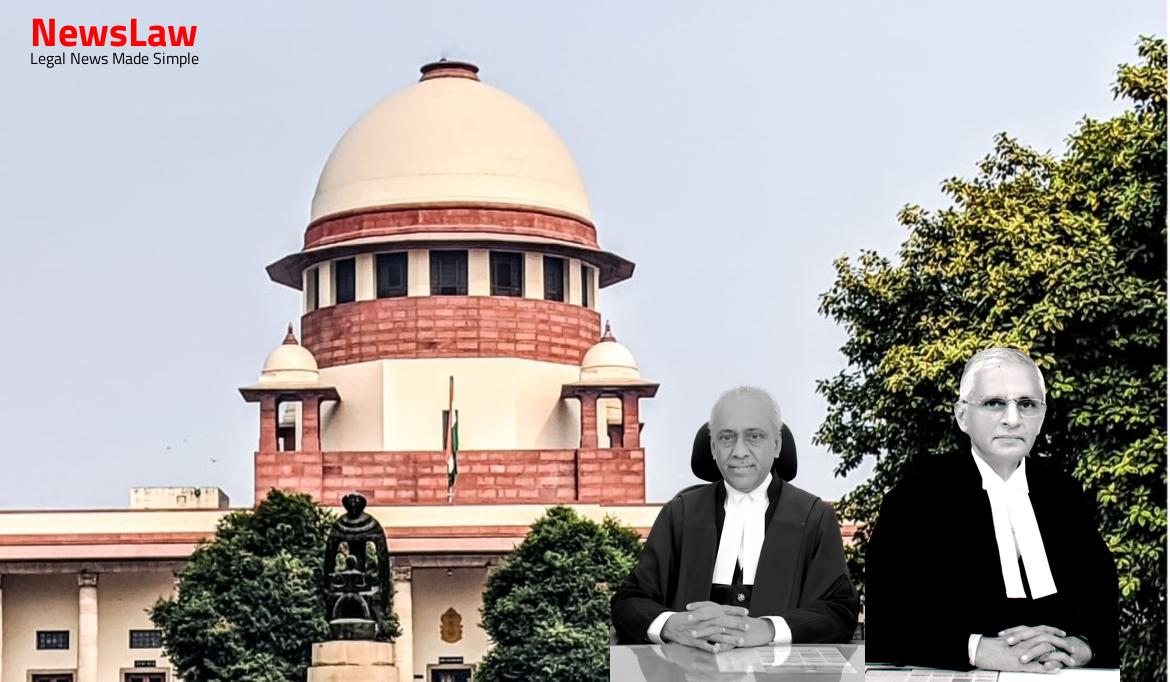In the case of Petitioner v. Respondent, involving an agreement for the sale of land and factory premises, the High Court recently dismissed a special leave petition. The petitioner had initially filed a suit for mandatory injunction, later seeking specific performance. The Court scrutinized the petitioner’s tactics and eventually upheld the dismissal of the suit. Let’s delve into the details of this legal battle.
Facts
- An agreement was made on 12.10.1994 between the petitioner and the respondent for the sale of land and factory premises.
- The agreement detailed the sale of land measuring about 1250 sq. yards for a total consideration of Rs.4,38,000/-.
- An earnest amount of Rs.1,00,000/- was paid at the time of agreement execution, with the performance date set for 07.10.1996.
- After the performance date, the petitioner claimed in a legal notice that the respondent disclosed civil litigation as a barrier to executing the sale deed.
- Upon no response to the legal notice, the petitioner filed a civil suit (CS No.240 of 1999) seeking a mandatory injunction for the respondent to transfer the property upon receiving the balance sale amount.
- The District Court allowed the appeal and dismissed the suit.
- The First Appellate Court judgment was set aside by the District Court.
- The petitioner filed a second appeal in RSA No.1244 of 2013 at the High Court of Punjab & Haryana at Chandigarh.
- The High Court dismissed the second appeal on 20.05.2016.
- The plaintiff has now filed a special leave petition against the judgment and decree.
Also Read: Jurisdictional Analysis in Transfer Petition
Arguments
- The petitioner’s argument is that the High Court incorrectly deemed the suit as time-barred.
- Section 16(c) of the Specific Relief Act, 1963 was not given due consideration by the High Court in relation to the case’s facts, as per the petitioner’s assertion.
- The petitioner believes that this oversight by the High Court has tainted the judgment.
- The learned senior counsel for the petitioner contends that the High Court’s judgment conflicts with the law, specifically Section 149 of the Code of Civil Procedure.
- The main argument put forth by Shri R. Basant, the learned senior counsel for the petitioner, is that the Trial Court had, in its order dated 9.08.2003, treated the suit for mandatory injunction as one for specific performance.
- The Trial Court then directed the petitioner to pay the deficient court fee, which the petitioner complied with.
- It is argued that under Section 149 of the Code of Civil Procedure, this payment should hold the same legal validity as if it had been paid initially.
Also Read: Analysis of Excise Duty Valuation Rules
Analysis
- The petitioner initially filed a suit for mandatory injunction on 13.10.1999, three years after the deadline fixed in the agreement of sale.
- The petitioner attempted to claim specific performance indirectly by portraying the suit as one for mandatory injunction and paying a lesser court fee.
- The Trial Court eventually allowed the petitioner to pay the deficit court fee, considering the suit as one for specific performance, despite the delay in filing.
- The conduct of the petitioner in delaying the filing of the suit and using clever tactics was scrutinized by the Court.
- There was a lack of framing an issue regarding readiness and willingness as per Section 16(c) of the Specific Relief Act.
- The approach of the petitioner in trying to bypass the limitations by seeking to amend the suit for specific performance at a later stage was criticized.
- Petitioner’s actions were viewed as a shortcut to retain the original suit format while seeking the benefits of specific performance.
- The discretion of the Court under Section 149 CPC to allow payment of deficit court fee was acknowledged, but the petitioner’s strategies were not favorably viewed.
- The first Appellate Court correctly reversed the decree of specific performance granted by the Trial Court
- The High Court was justified in upholding the judgment of the first Appellate Court
- Special leave petition was dismissed with no order as to costs
Also Read: Legal Analysis of Alleged Emission Cheating Scandal
Case Title: ATMA RAM Vs. CHARANJIT SINGH (2020 INSC 162)
Case Number: SLP(C) No.-027598-027598 / 2016



